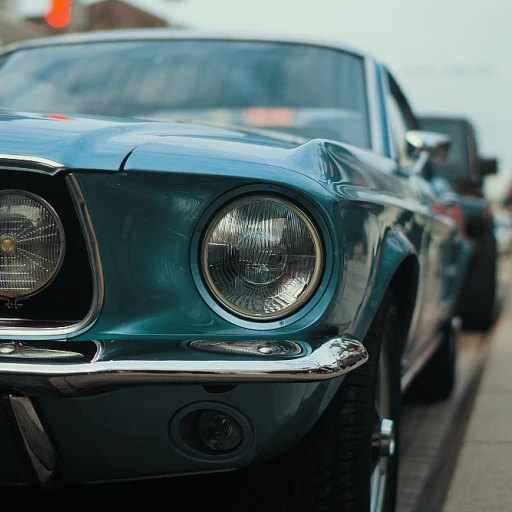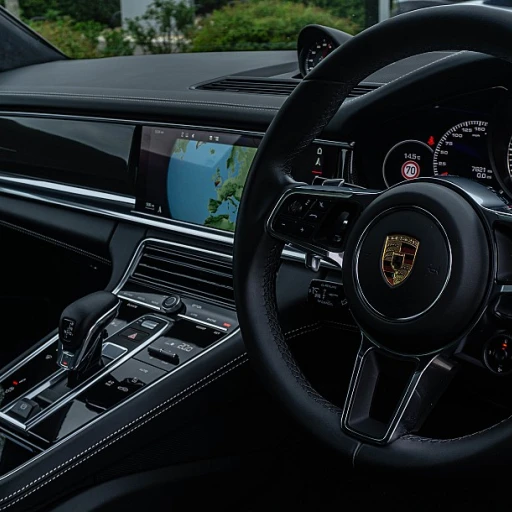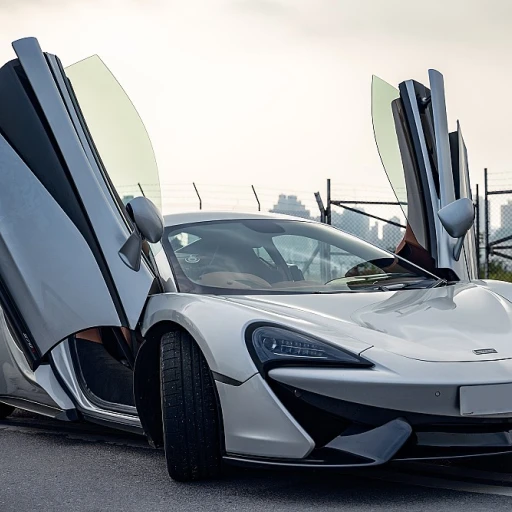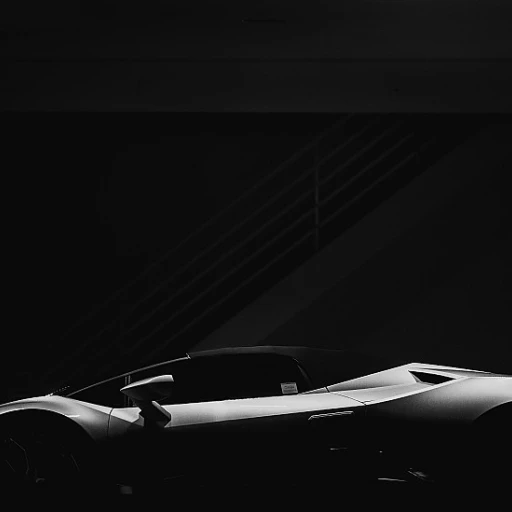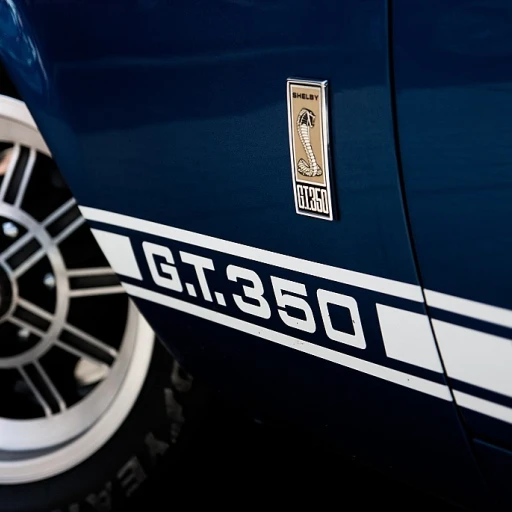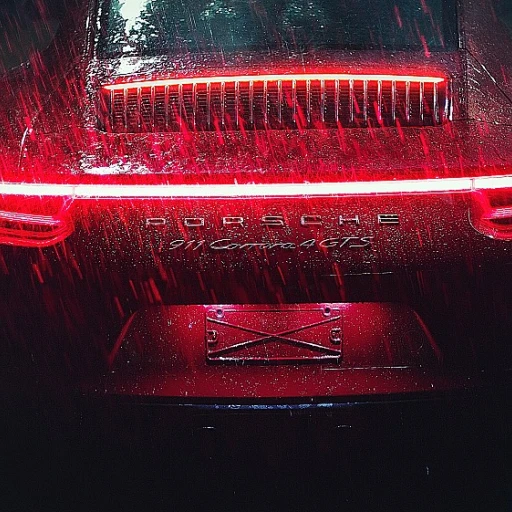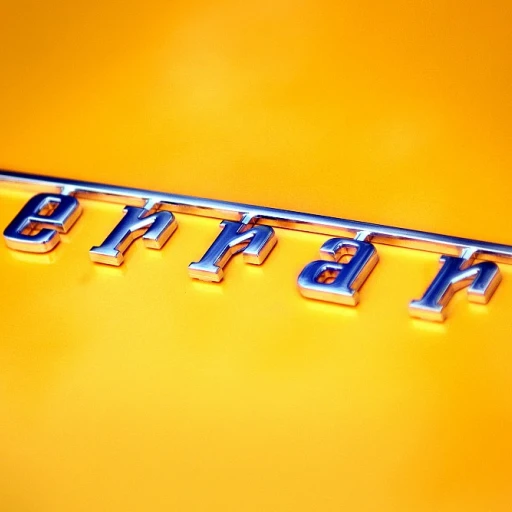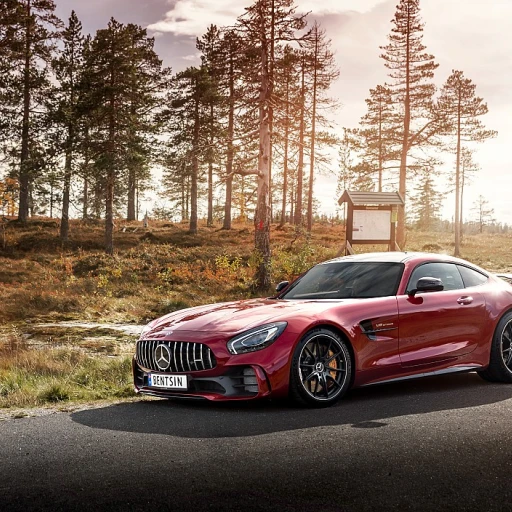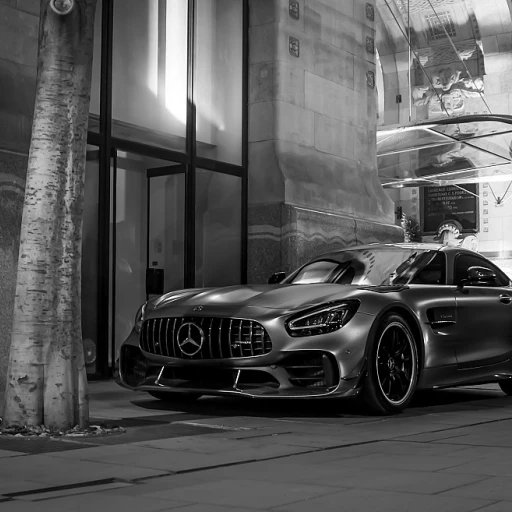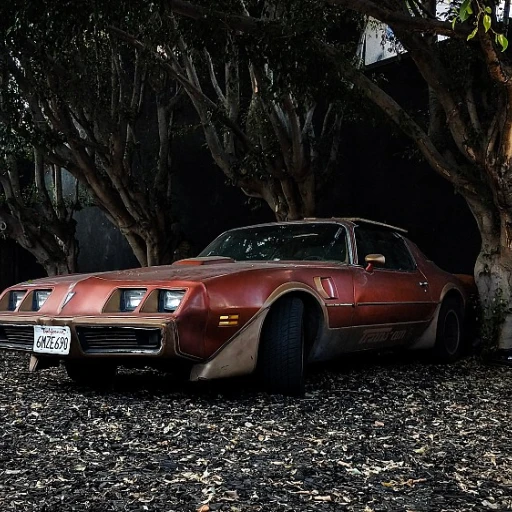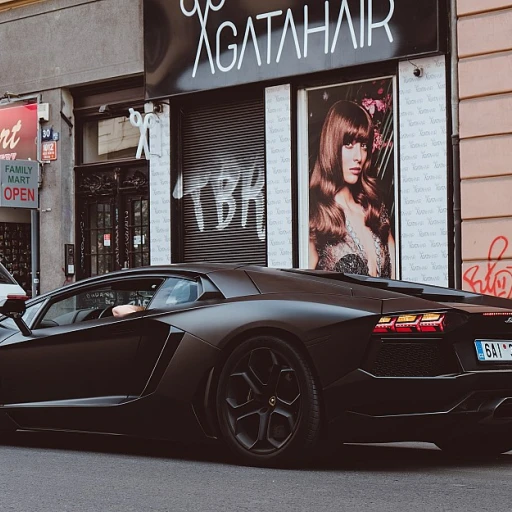
The heritage and prestige of luxury sports cars brands
History behind legendary brands
One can’t discuss luxury sports cars without mentioning their storied pasts. These brands, like Ferrari, Porsche, and Aston Martin, have cemented themselves in automotive history, each with a unique tale.
Ferrari, the epitome of Italian craftsmanship, was founded in 1939 by Enzo Ferrari. Since then, it has consistently delivered speed, elegance, and high performance. The prancing horse logo is synonymous with prestige and thrill, capturing hearts with models like the Ferrari 250 GTO.
On the other hand, Porsche, with its roots dating back to 1931 in Germany, has become a symbol of engineering precision. The Porsche 911, arguably the most iconic model, remains a benchmark in the sports car segment, with no intention of slowing down.
The art of exclusivity
The allure of these brands isn’t just about speed; it’s about being part of an exclusive club. Aston Martin, for instance, has a heritage deeply intertwined with British elegance and James Bond films. Established in 1913, it’s more than just a car brand; it’s a statement.
Mercedes-Benz and BMW, also originating from Germany, bring a different flavor to the luxury sports car arena. Their models, like the Mercedes-Benz AMG series and BMW M series, blend performance with daily usability. These brands have redefined what it means to drive a luxury car that can also be your daily driver.
Merging tradition with innovation
Innovation without losing essence is key. Brands like McLaren, which emerged from the motorsport world, show how tradition and modern technology can coexist. McLaren’s approach to car manufacturing, influenced by Formula 1, offers cutting-edge technologies and exhilarating speeds.
Then there’s the ever-glamorous Rolls-Royce, representing the apex of luxury. Despite being known for enormous and opulent cars, their V12 engines offer surprising performance metrics, embodying complete luxury and power in harmony.
Top performance metrics: speed, engine, and more
Top performance metrics: speed, engine, and more
Unraveling the blazing speed factor in luxury sports cars
When we talk about luxury sports car brands, their blistering speed often steals the spotlight. These phenomenal machines are designed for one thing above all else: performance. Whether you're looking at a Porsche or a Ferrari, speed is a defining feature, and it's quantified in miles per hour (mph).
The Ferrari LaFerrari, for example, can reach a top speed of around 217 mph. Meanwhile, the Bugatti Chiron Super Sport 300+ takes speed to another level, boasting a top speed of 304 mph. These sports car brands push the envelope constantly regarding swift agility.
The Heart of Performance: Engine Specifications
Engine configurations are the beating heart of these thrilling rides. The McLaren 720S uses a twin-turbocharged 4.0-liter V8 engine, churning out an impressive 710 horsepower. This engine not only boosts speed but also provides a remarkable driving experience. On the other hand, the Lamborghini Huracán EVO features a naturally aspirated 5.2-liter V10 engine, delivering over 600 horsepower.
Nit-picking acceleration and handling
Acceleration is another critical metric that defines luxury sports cars. The Chevrolet Corvette Stingray can accelerate from 0-60 mph in just 2.9 seconds. This acceleration rate can sometimes seem almost otherworldly but is integral to the allure of these vehicles. Beyond acceleration, handling enhances driving enjoyment. The Porsche 911 GT3, with its rear-wheel drive system, exemplifies this aspect with precise, nimble handling on the road.
Innovation in transmission systems
The evolution of transmission systems has also significantly impacted performance. Modern luxury sports cars often feature advanced dual-clutch transmission systems. The Audi R8 V10 Performance, for example, uses a seven-speed dual-clutch system that allows for almost instantaneous gear changes, enhancing both speed and control.
Performance metrics extend beyond mere engine prowess and speed capabilities. They are a testament to the innovation and engineering prowess of these prestigious brands. To dive deeper into the evolution of such iconic brands like Ferrari or explore other luxury sports car milestones, consider reading about embracing the myth, unraveling the legacy of Lamborghini models through the years.
The best luxury sports cars models of all time
The best luxury sports cars that have marked history
When talking about luxury sports cars, a few models consistently emerge as icons in automotive history. These cars aren't just machines; they're legends that have set the bar in terms of performance, design, and innovation. Let's dive into some of the best luxury sports cars that have won the hearts of enthusiasts worldwide.
Ferrari f40: the ultimate driving machine
Introduced in 1987 to mark Ferrari's 40th anniversary, the Ferrari F40 is often hailed as one of the greatest sports cars of all time. Its twin-turbocharged 2.9-liter V8 engine produces an impressive 471 horsepower, propelling it to a top speed of 201 mph. This car epitomizes raw power and aerodynamic purity, and remains a dream car for many.
Porsche 911: the timeless icon
No list of legendary sports cars is complete without mentioning the Porsche 911. Introduced in 1964, the 911 has evolved through multiple generations while maintaining its distinctive design. Known for its rear-engine layout and strong performance, the 911 continues to be a favorite among luxury car enthusiasts. The latest models can achieve speeds of over 200 mph and feature cutting-edge technology, such as adaptive cruise control and Porsche's PDK dual-clutch transmission.
Mclaren f1: redefining speed and luxury
Released in 1992, the McLaren F1 set new standards for speed and luxury. Its unique central driving position and naturally aspirated 6.1-liter V12 engine producing 618 horsepower allowed it to achieve a top speed of 240 mph, making it the fastest production car of its time. Only 106 units have been produced, making it a rare and highly coveted car.
Aston martin dbs: british elegance and power
The Aston Martin DBS combines British elegance with immense power. Its 5.2-liter twin-turbocharged V12 engine generates 715 horsepower, allowing it to reach speeds of 211 mph. The DBS is not only known for its performance but also for its luxurious interior, featuring hand-stitched leather and state-of-the-art infotainment systems.
Bugatti veyron: a decade of dominance
The Bugatti Veyron, introduced in 2005, set new benchmarks in the supercar segment. Its 8.0-liter quad-turbocharged W16 engine produces an astonishing 1,001 horsepower, enabling a top speed of 253 mph. The Veyron's combination of speed, luxury, and technological advancements made it a formidable competitor in the luxury sports car market for over a decade.
The rise of electric luxury sports cars
In recent years, electric luxury sports cars have made significant strides in performance and design. Brands like Porsche with its Taycan and Tesla with its Roadster are pushing the boundaries of what electric cars can achieve. These models not only offer zero emissions but also incredible acceleration and top speeds that rival their gasoline-powered counterparts. To know more about the future of luxury electric cars, check our detailed analysis on luxury electric cars .
Conclusion: timeless appeal of luxury sports cars
Luxury sports cars have left an indelible mark on automotive history, each model bringing something unique to the table. Whether it's the raw power of a Ferrari, the timeless design of a Porsche, or the technological prowess of a McLaren, these cars have set the gold standard in the industry. As technology advances, expect even more groundbreaking models to join the ranks of the best luxury sports cars of all time.
Electric luxury sports cars: the future of performance
Electric luxury sports cars: redefining performance
In recent years, the automotive industry has been stirred by a silent revolution. No longer is the roar of an internal combustion engine the only sound synonymous with raw power and exquisite engineering. Enter the new era of electric luxury sports cars, where brands like Tesla, Porsche, and Audi are leading the charge with groundbreaking offerings that promise not just zero-emission driving but also blistering performance.
The allure of electric speed and acceleration
Electric luxury sports cars are renowned for their thrilling acceleration. For example, the Tesla Model S Plaid can accelerate from 0 to 60 mph in just under 1.99 seconds, as confirmed by Tesla’s official documentation. Similarly, Porsche’s Taycan Turbo S impresses with its 0 to 60 mph sprint in 2.6 seconds (source: Porsche). This places electric sports cars on par with or even ahead of traditional gasoline-powered beasts.
Pioneering electric sports car brands
Let's shine a spotlight on some of the frontrunners. Tesla, headquartered in the United States, has become a household name in the realm of luxury electrics. Meanwhile, Porsche has brilliantly combined its pioneering spirit with classic luxury in the Taycan series. Audi, another German giant, is making waves with their e-tron GT, showcasing their commitment to electric performance. Other key players include BMW with the i8 and the exotic Lotus Evija.
Cutting-edge technological advancements
The technological advancements embedded in these electric luxury sports cars are nothing short of cutting-edge. Innovations like battery management systems, regenerative braking, and state-of-the-art infotainment systems elevate the driving experience. For instance, the Lucid Air boasts a quoted range of over 500 miles per charge (source: Lucid Motors), thanks to its highly efficient battery system. Companies are investing heavily in research and development to push the boundaries of what electric vehicles (EVs) can achieve.
Environmental and regulatory impacts
Electric vehicles also cater to growing environmental consciousness among consumers. Governments worldwide are increasingly enforcing stringent emission norms, spurring the demand for electric luxury sports cars. In the European Union, for instance, new CO2 emission targets are making electric vehicle production not just attractive but necessary for automakers (source: European Commission).
Consumer adoption and market trends
Consumer adoption rates for electric luxury sports cars are climbing. According to a 2022 report by the International Energy Agency, global electric car sales surpassed 6.6 million units, with a noticeable chunk of that being luxury models. Brands like Mercedes-Benz and Jaguar, with their EQS and I-PACE models respectively, are seeing increased interest from affluent buyers seeking a blend of luxury and sustainability.
Challenges and future outlook
Despite the advances, electric luxury sports cars face challenges such as range anxiety, charging infrastructure, and high initial costs. However, ongoing advancements in battery technology and expanding charging networks are expected to mitigate these issues. The accelerating shift towards sustainability suggests that the future of luxury performance is unequivocally electric.
Explore more about the thrill of driving luxury sports cars here.
Expert insights: what makes a luxury sports car brand stand out
Defining luxury through innovation
Luxury sports car brands like Mercedes-Benz, Ferrari, and Porsche excel not just because of their legacy but also due to their continuous innovation. Dr. Matthias Rabe, formerly at Bentley, highlighted that innovation in areas like “aerodynamics and material science” sets top brands apart. This constant push for innovation has also led to cars with incredible performance metrics, boasting engines like the twin turbocharged 4.0-liter V8 found in the latest generation of Mercedes-AMG GT.
Exclusivity and craftsmanship
Craftsmanship and attention to detail are essential factors that define these brands. Rolls-Royce, for instance, ensures that each vehicle is meticulously handcrafted, resulting in a product that is not just a car, but a work of art. Jeremy Clarkson once noted that the experience of driving a Rolls-Royce is akin to being masqueraded in “sheer opulence." This meticulous craftsmanship substantiates their enormous price tags, which often exceed $300,000.
Status symbol
Let’s face it, part of what makes luxury sports car brands desirable is the status symbol they represent. A Ferrari isn’t just a car but a statement of financial success and exquisite taste. According to Statista, around 9 percent of Ferrari buyers in the U.S. have an annual income of over $1 million, making the car a definitive status symbol.
Performance metrics that dazzle
What sets apart brands like Ferrari, McLaren, and Porsche isn't just their luxurious feel but their astounding performance metrics. The McLaren 720S, for instance, accelerates from 0-60 mph in under 2.9 seconds, thanks to its twin-turbocharged 4.0-liter V8 engine. Such performance metrics not only make these cars thrilling but also justify their sky-high prices.
Customer service and exclusivity
A point often overlooked is the exceptional customer service that these brands offer. Aston Martin, for example, delivers a bespoke service experience; their ‘Q by Aston Martin’ service offers customization options that cater to even the most exclusive tastes, thereby enhancing customer satisfaction and loyalty.
Controversies and price dynamics
The luxury sports car market isn’t free from controversies. Issues such as emissions scandals (remember Volkswagen's Dieselgate?), and the financial barriers to owning these high-maintenance vehicles are constant topics of discussion. According to automotive analysts, the high cost of materials and limited production runs contribute greatly to the steep prices.
In summary, it’s the blend of performance, innovative technology, impeccable craftsmanship, and the status symbol that makes these brands truly stand out in the luxury sports car market.
Case study: the evolution of the Ferrari brand
Tracing Ferrari’s roots
Ferrari, one of the most iconic luxury car brands, has a rich history that began in 1939 when Enzo Ferrari founded Auto Avio Costruzioni. This brand's journey is filled with innovation, passion, and remarkable achievements that have cemented its position as a powerhouse in the world of luxury sports cars. Ferrari’s first car, the 125 S, debuted in 1947, featuring a 1.5-liter V12 engine, marking the beginning of a legacy defined by speed and performance.
Innovative milestones and iconic models
Throughout the decades, Ferrari has introduced several groundbreaking models. The Ferrari 250 GTO, launched in 1962, is often revered as one of the best luxury sports cars of all time. Its 3.0-liter V12 engine delivered an impressive 296 hp, and it could reach a top speed of 174 mph. In more recent years, Ferrari continues to push the envelope with models like the hybrid LaFerrari, which combines a 6.3-liter V12 engine with an electric motor to produce a staggering 949 hp.
The Scuderia: Ferrari’s racing heritage
Ferrari’s participation in motorsport has significantly contributed to its prestige. The Scuderia Ferrari racing team is the oldest and most successful team in the history of Formula 1. As of 2023, Scuderia Ferrari holds 16 Constructors' Championships and 15 Drivers' Championships, reflecting the company's relentless pursuit of excellence on the racetrack. According to the F1 official website, Ferrari has won over 240 Grand Prix races, more than any other team.
Enduring appeal and market influence
Ferrari's influence extends beyond the racetrack and into the luxury car market. With an average annual revenue exceeding €3.7 billion according to the Statista, Ferrari is not just a car; it's a symbol of luxury and performance. The brand's meticulous design, cutting-edge technology, and exclusive craftsmanship continue to attract car enthusiasts worldwide, keeping it at the forefront of the industry.
Adapting to modern technologies
Ferrari’s commitment to innovation is evident in its adoption of modern technology. The LaFerrari model uses hybrid technology to achieve performance gains while also being environmentally conscious. The company also embraces the future of electric luxury sports cars with plans to introduce its first all-electric model by 2025. This move aligns Ferrari with the industry's shift towards sustainable mobility solutions.
Maintaining exclusivity amidst challenges
Ferrari has faced various challenges, including economic downturns and the pressures of modernizing while retaining its heritage. However, the company has navigated these hurdles by limiting production numbers to maintain exclusivity. For instance, the limited production of the Ferrari Monza SP1 and SP2 models ensures they remain coveted pieces among collectors and enthusiasts.
A glimpse into Ferrari's future
As Ferrari moves forward, the brand continues to be synonymous with high performance, luxury, and exclusivity. The company's dedication to embracing new technologies while preserving its rich heritage ensures that Ferrari remains a benchmark in the luxury sports car market. With upcoming releases like the Purosangue SUV, Ferrari is poised to set new standards in performance, luxury, and innovation.
For more on the evolution of luxury sports car brands, continue reading about Lamborghini models through the years.
The role of technology in modern luxury sports cars
Cutting edge technology in propulsion and handling
Luxury sports cars are a playground for innovation. Brands like Porsche, Ferrari, BMW, and Audi constantly push boundaries. Let's take electrification as an example—Porsche introduced the Taycan, an electric marvel capable of reaching 60 mph in just 2.6 seconds, showcasing how electric engines can rival traditional combustion engines in both performance and excitement.Adaptive aerodynamics and materials
Brands are incorporating advanced aerodynamics and lightweight materials to enhance performance. For instance, the McLaren Senna uses active aerodynamics that adjust in real-time, adapting to the driving conditions to provide optimal downforce and stability. Similarly, Aston Martin's use of carbon fiber and aluminum reduces weight while maintaining structural integrity, improving both speed and fuel efficiency.Driver assistance and infotainment systems
Mercedes-Benz and BMW have integrated advanced driver assistance systems (ADAS) and cutting-edge infotainment features into their luxury sports cars. The BMW i8 includes features like adaptive cruise control and lane-keeping assist, while Mercedes-Benz's latest S-Class models are equipped with the MBUX infotainment system that uses artificial intelligence to provide a personalized driving experience. These technologies not only enhance safety but also contribute to driving pleasure.The digital cockpit: a blend of luxury and tech
The interior of luxury sports cars has transformed into a digital haven. Brands like Audi lead the way with their Virtual Cockpit, a fully digital instrument cluster that provides real-time performance data and navigation. Rolls-Royce, known for opulence, has integrated touchscreen interfaces seamlessly into their lavish interiors, ensuring that drivers have access to the latest technology without compromising on luxury.Continuous evolution and innovation
The luxury sports car industry is ever-evolving, with brands like Ferrari constantly introducing new models that leverage the latest technologies in engine performance and materials. The Ferrari SF90 Stradale, for example, combines a V8 engine with three electric motors, achieving a top speed of 211 mph. This relentless pursuit of performance and innovation ensures that luxury sports cars will continue to captivate enthusiasts for years to come.Controversies and challenges in the luxury sports car industry
Backlash against exorbitant prices
One of the major controversies in the luxury sports car industry is the ever-increasing prices. Reports suggest that the average price of a luxury sports car has surged by approximately 30% over the past decade [1]. This has raised eyebrows among enthusiasts and industry experts alike.
For instance, the limited-edition Bugatti La Voiture Noire was priced at a staggering $18.68 million [2]. While such vehicles symbolize ultimate luxury and engineering excellence, they are often seen as inaccessible for even well-heeled car aficionados.
Environmental concerns and regulatory challenges
As the automotive industry grapples with strict emissions regulations, luxury sports car brands face a unique set of challenges. This issue has become particularly significant in countries with stringent environmental laws. For example, the European Union's CO2 emission standards have pushed brands to innovate with hybrid and electric models.
An exemplary response to this challenge is Porsche's all-electric Taycan. It represents a leap into sustainable performance, balancing luxury and environmental responsibility. However, the transition isn't without its hurdles. A considerable investment in research and development is required, which can strain financial resources [3].
Reliability issues
While luxury sports car brands are known for their high performance, reliability has often been a point of contention. According to a study by J.D. Power, some luxury brands like Alfa Romeo have ranked lower in terms of dependability compared to mainstream brands [4]. This discrepancy can deter potential buyers who are concerned about maintenance costs and long-term reliability.
Competition and market saturation
The luxury sports car market is becoming increasingly crowded with both traditional powerhouses like Ferrari and newer players like Tesla’s Roadster. The competition is fierce and maintaining a distinctive appeal is harder than ever. Brands are continuously innovating, but they also face the risk of oversaturating the market.
“The key to standing out in this competitive market is not just performance but also brand experience and customer service,” states John Krafcik, CEO of Waymo [5].
Ethical considerations and labor practices
Ethical concerns regarding labor practices have also come to the forefront. An exposé published by The Guardian revealed that some ultra-luxury car manufacturers were implicated in unethical practices, raising questions about the human cost of these high-end vehicles [6].
Unexpected recalls
Luxury sports cars aren’t immune to product recalls, another controversy that can tarnish a brand's image. For instance, McLaren had to recall its 570GT and 720S models due to fire risks caused by fuel leaks [7]. Such issues can severely impact a brand’s reputation and customer trust.
All these controversies highlight that owning and manufacturing a luxury sports car isn’t all about glamour and speed. Brands must navigate a complex maze of challenges to maintain their status while adapting to the evolving market demands.
[1] Source: [Automotive News], [2] Source: [Top Gear], [3] Source: [Car Magazine], [4] Source: [J.D. Power], [5] Source: [Automotive News], [6] Source: [The Guardian], [7] Source: [McLaren Press Release]


